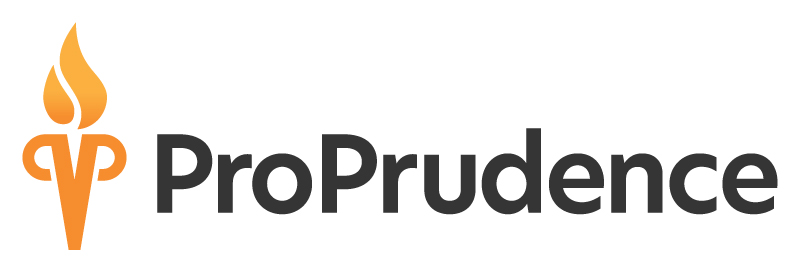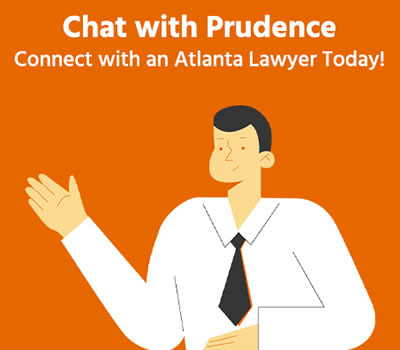We all know we’re being tracked to varying degrees when we are online. It’s a social contract we all agree upon, a bargain we make with ourselves and the universe of possibilities the internet affords us. For ProPrudence clients connecting with attorneys, fears of being tracked are quieted by the protections provided by the attorney-client privilege. If you’re here because you need to connect with a reproductive care expert, you also have some built-in protections. HIPAA protects private health information (PHI) but there is a lot of uncertainty regarding how far those protections extend when it comes to the digital data you share, knowingly or unknowingly, with the internet and digital devices (phone/iPad/computer/fitbit or other wearable tech/health tracking apps). This article will explore what’s known about how far these protections extend, what’s not known, and how ProPrudence can help.
What’s Known
Major life events, such as a pregnancy, often trigger new spending habits that many companies want to capitalize on. There are many real life instances where advertisers knew of a couple’s pregnancy well before their friends and family did. Most of us are pretty familiar with data mining at this point but here is a brief story showing the great lengths online platforms and data brokers will go to in order to identify and track your pregnancy:
- Janet Vertesi is a Princeton Sociology professor who decided she would undertake a personal project when she and her husband decided they would try to get pregnant. The basic premise of the project was whether or not she could carry the pregnancy to term without the internet knowing. Could Mrs. Vertesi protect her personal data to a point that she would not be completely overwhelmed with diaper and formula ads? The short answer is, yes, but it came at a great cost. She and her husband purchased everything with cash or gift cards that they would purchase with … cash. This cash heavy lifestyle raised some red flags of its own. Moreover, she and her husband could not share their happy news with anyone lest that person send a congratulatory message or, worse, send them a gift. And, perhaps most importantly, Mrs. Vertesi and her husband never, ever, used any of their personal electronic devices for anything related to the pregnancy.
- So, is it possible? It appears the answer is yes. But, asked if she would recommend this approach to anyone thinking of trying the same approach, Mrs. Vertesi said “Opting out makes you look like a criminal. People have reasons for privacy that are not terrible ones. They just don’t want everything about them captured by a company and kept. It’s incredibly inconvenient. It isn’t sustainable and I don’t recommend that other people try fleeing Facebook and doing everything with Tor. I just wanted to show how we take for granted the mechanisms of the Internet economy, including constant tracking and monetizing of our data. My project wasn’t about not consuming; I just wanted to resist tracking in the act of consumption, and that was difficult to do.”
- https://www.forbes.com/sites/kashmirhill/2014/04/29/you-can-hide-your-pregnancy-online-but-youll-feel-like-a-criminal/?sh=488a524f21f3
Putting Mrs. Vertesi’s story in our rearview, it’s pretty fair to say a pregnant person in America is forced to engage with a system that actively collects, stores, and sells their data. With that as our baseline, let’s explore the risks that might be associated with exploring your reproductive care options online.
In 2018 the United States Supreme Court decided that some information you share with third parties is protected by the 4th Amendment’s privacy protections. This was a landmark ruling because privacy protections had not before been extended to information we share with third parties. In Carpenter v. United States the court held that cell phone users retained Fourth Amendment rights with regard to their location data. However, Carpenter hasn’t exactly created a lot of certainty when it comes to how far these 4th Amendment protections extend with regard to our digital footprint.
In the Carpenter decision the court set forth some factors to consider when deciding whether 4th Amendment protections extend to digital information we’ve shared with a third party. Those factors include but are not limited to: 1) the revealing nature of the information, 2) the quantity of information disclosed, and 3) whether the information was shared automatically (a cell phone pinging a tower, for example) or was shared voluntarily. Essentially these tests indicate that 1) the more revealing the information is, the more it likely needs to be protected, 2) the more information shared, the more likely it contains information worthy of 4th Amendment protections, and 3) if you voluntarily disclose information then it is less likely to be protected.
WHAT DOES ANY OF THIS HAVE TO DO WITH ME? You may be asking …
All of the legal uncertainty surrounding Carpenter and Dobbs means two things:
- Be extra careful whom you share your digital data with and how you share it when interacting with platforms. It is wise not to share your phone with police unless they present a warrant. Your digital data is often a window into your deepest thoughts, feelings, and plans. Consider whom you would share that information with under normal circumstances.
- Any information you disclose to a healthcare provider is protected by HIPAA privacy laws. Therefore it is free from the Carpenter factors, right? Well, not exactly.
- Private Health Information may be disclosed when a company/entity is presented with a court order compelling disclosure of specific information.
- Remember, you are voluntarily sharing this information with third parties over the internet when you are seeking out reproductive care services. Under Carpenter it is more likely than not that, if presented with a court order, a provider may be forced to disclose your private health information.
Moreover, as described in “Surveilling the Digital Abortion Diary”:
- “Geofencing tools have already targeted people entering and leaving Planned Parenthood clinics across the country, sending them anti-abortion messages via their search browser on their digital devices.” Additionally, “to search social media platforms, many police departments do not need access to a device; social media platforms grant them special access to perform keyword searches on posts geotagged within their jurisdiction.”
It can all sound pretty scary and, frankly, it is. But we prefer not to use paranoia to market our business. We prefer to empower every individual. This isn’t about politics, it’s not about police powers or a potential police state, it’s about people.
ProPrudence and the unknown
We’ve covered how much legal uncertainty exists in the world of digital information sharing. Technological advancements operate at a pace the law simply can’t keep up with. While Dobbs did not criminalize abortion, many states that have highly restrictive laws in place are seeking to criminalize abortion.
We built ProPrudence for one simple reason: People, all people, deserve a private space to discuss their private business. End-to-end encryption is the best way to accomplish this. Your interaction with our bot, Prudence, is encrypted and, most importantly, your video connection with a provider is encrypted.
In general, video is a great way to communicate private information. As long as the video call is not being recorded or being transcribed, everything said on that call is contained within that space. At ProPrudence we do not give the option of recording. Your connection with a reproductive care provider (or attorney for our family law clients) is completely confidential. No surveillance. No invasions of privacy. Imagine a stress-free space for you to discuss your most private business. We built it for you.
We do not know how laws will develop in the world of reproductive rights. Both Carpenter and Dobbs will have great influence on how things develop. As stated in “Surveilling the Digital Abortion Diary”:
- “The amount of privacy protection we should each employ is not gauged by how exposed one is to criminal prosecution in a personal capacity, but by how exposed the most vulnerable person in our network is.”
At ProPrudence, we seek to establish a baseline privacy protection for everyone, especially the most vulnerable.






